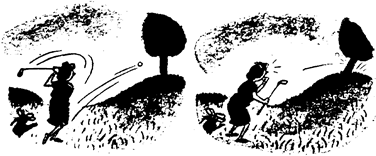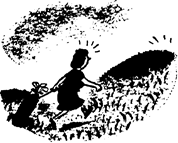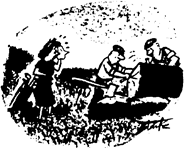
Заглавная страница Избранные статьи Случайная статья Познавательные статьи Новые добавления Обратная связь FAQ Написать работу КАТЕГОРИИ: ТОП 10 на сайте Приготовление дезинфицирующих растворов различной концентрацииТехника нижней прямой подачи мяча. Франко-прусская война (причины и последствия) Организация работы процедурного кабинета Смысловое и механическое запоминание, их место и роль в усвоении знаний Коммуникативные барьеры и пути их преодоления Обработка изделий медицинского назначения многократного применения Образцы текста публицистического стиля Четыре типа изменения баланса Задачи с ответами для Всероссийской олимпиады по праву 
Мы поможем в написании ваших работ! ЗНАЕТЕ ЛИ ВЫ?
Влияние общества на человека
Приготовление дезинфицирующих растворов различной концентрации Практические работы по географии для 6 класса Организация работы процедурного кабинета Изменения в неживой природе осенью Уборка процедурного кабинета Сольфеджио. Все правила по сольфеджио Балочные системы. Определение реакций опор и моментов защемления |
Great Britons (5): Captain ScottСодержание книги
Поиск на нашем сайте M r. P r i e st l e y: You know, I am sure, about one Scott, Sir Walter, who will be immortal as long as the English lan guage is read. Here is another Scott, immortal, too, as long as men still admire heroism and endurance. In 1910 Captain Robert Falcon Scott and his crew set sail in the Terra Nova in an attempt to discover the South Pole. They made their base at Cape Evans and planned the journey to the Pole in three stages. First there was the crossing of the Barrier, a great plain of ice of nearly 500 miles. Over this Scott planned to send as much food and other stuff as he could by motor sledges. When these could go no farther, dogs and ponies would take the loads as much farther forward as they could. The motors took them the first 50 miles, then the ponies and dogs and men continued the journey south. Some of the ponies had to be shot as food for them was running short, but at last the plain was crossed. An even more difficult stage lay before them now, for towering in front of them rose a great range of mountains, in parts over 9,000 feet high and covered with ice. But through the range flowed a glacier, the Beard-more Glacier, and to climb this would be the next stage of the journey. At the foot of the glacier they killed the remaining ponies (some of them had already died), cut up the meat and buried it so that it would provide food for the return journey. The dogs and some of the men now went back, but three sledges, each pulled by four men, set off on the next stage. It was a terrible journey; the snow was so soft that often they sank to their knees in it, and the heavy sledges - each carried 800 lbs. were very difficult to move through it. Some of the men suf fered from snow blindness, and most of them were already feeling the strain of the journey. Still they struggled on, nine hours a day, with resolute courage. It was the hope of reaching the Pole that made the journey endurable. Scott watched the men carefully. He had decided that the final dash of 150 miles would be made by four men and him self, and he had to make up his mind which of the men he would choose. Finally he made his choise. In addition to Scott himself there was Dr.E.A. Wilson ("Uncle Bill"), surgeon and artist, a deeply-learned man of a most lovable nature, brave, gentle and saintly. Then there was Lieutenant Bowers, small in body but a giant in soul; Captain L.E.G. Oates of the Royal Inniskilling Dragoons, and finally there was Edgar Evans, a British seaman, a huge fellow, as strong as a horse and unfai lingly cheerful. These were the immortal five. On 3rd January 1912, when the South Pole was 150 miles away, the seven men left behind said good-bye and cheered the five who were to go on, and watched them set off harnessed to their sledges, five brave souls who would never again see living faces except one another's. Scott expected they would be at the Pole in a fortnight. For thirteen months nothing was heard of them, but from Scott's diaries we know all there is to be known. On 18th January they reached the Pole. Three of the men were frost-bitten; all were hungry and weak. And at the Pole, in the midst of the waste of snow, stood a tent, with the Nor wegian flag flying above it. Amundsen, the Norwegian explo rer, had been there a month before and had gone. In the tent was a letter addressed to Scott saying: "Welcome to 90 degrees. With kind regards. I wish you a safe return. Roald Amundsen". Bitterly disappointed, Scott and his companions set out on the return journey. It had taken them seventy-six days to get there; it would take at least as long to get back, and there were no ponies at the Barrier, only their frozen flesh, and they might not even find that. It was still the Antarctic summer but the weather was bitter, the wind was blowing at blizzard force, the ice was rough and food was short. They got at last to top of the glacier. "I wonder if we can do it", wrote Scott. The condi tions were terrible; their sleeping-bags never really thawed out, ice formed on the inside of their tent, and then, a month after they left the Pole, Evans collapsed. When he could no longer walk he tried to crawl on hands and knees down the glacier. Their only hope of success was to go on and leave Evans. But they did not go on. They stayed by him and, "we did not leave him till two hours after his death", writes Scott. Without Evans' mighty strength it was almost impossible for the others to pull the sledge. The weather grew worse, with hurricanes, blizzards, intense cold, and they had not enough fuel to warm their food. Oates was suffering terribly from frost bite and could not pull the sledge; indeed he could hardly walk. "What shall I do?" he said to Dr.Wilson. "Keep on, keep on", said Wilson. But Oates knew he was slowing down the progress of his friends and making their death certain too. He slept through the night, hoping that he would not wake, but in the morning he was still alive. He said to his friends, "I am going outside and I may be some time". "They knew he was walking out to his death in order that they might live, and tried to dissuade him, "but", says Scott, "we knew it was the act of a brave man and an English gentleman. We all hope to meet the end with a similar spirit, and assuredly the end is not far". They came at last to a spot only 11 miles from their "One Ton Camp", but the blizzard was so fierce that they had to camp where they were with fuel for one hot meal and food for two days only. Only 11 miles to safety but they could not reach it. The blizzard blew more fiercely than ever. Despite the cold and hunger, Scott and his companions lived for four days long er, and they died there in their tent, three friends who did not fail one another. Scott was the last to die.He filled in his diary almost to the last day and wrote a noble last message: "We are weak, writing is difficult, but for my own sake I do not regret this journey, which has shown that Englishmen can endure hardship, help one another and meet death with as great a fortitude as ever in the past. "Things have come out against us; we have no cause for complaint but bow to the will of God, determined still to do our best to the last. "But if we have willing to give our lives to this enterprise, which is for the honour of our country, I appeal to our country to see that those who depend on us are property cared for. Had we lived I should have had a tale to tell of the endurance and courage of my companions which would have stirred the heart of every Englishman. These rough notes and our dead bodies must tell the tale". Eight months later a search party found that silent tent. They were there as they had died. Scott's arm was outstretched to touch his friend Wilson. The diary and letters were by his side; there was no food whatever, but on the sledges outside were still the rocks, etc., 35 lbs. in weight, for scientific study that they had brought back from the Pole. In that last painful march they had not forgotten that they were scientists as well as explorers. The body of Oates was never found, but some where about the place where he went away they put up a heap of stones with the words: "Hereabouts died a very gallant gen tleman, Captain L.E.G.Oates, who, on their return journey from the Pole in March 1912, willingly walked to his death in a blizzard to try to save his companions". PABOTA C r.JIArOJIOM (19): set B TeKcTe ypoKa BCTpeqarrMcb BbipaJKemrn: Captain Scott set sail in Terra Nova. They watched them set off Scott and his companions set out on the the return journey. Ho set MMeeT M,n:pyrMe 3Haqemrn. HarrpMMep: The sun sets in the west. Tell Susan to set the table (i.e., put the cups, saucers, plates, etc., in position on the table). The child was playing with matches and set fire to some papers and the whole house was set on fire. Frieda's engagement ring is a diamond set in gold. Jan broke his leg playing football and doctor set the broken bone. He opened the cage and set the bird free. Mr. Priestley will set the examination paper. Winter has set in(=begun) early this year. Come on, set to work(=begin in earnest). What you said has set me thinking (=caused me to think). THE NON-FINITES (3): PARTICIPLES (Heau1tnb1e <}JopMbt (3): npu1tacmua) There are two participles, the present participle and past participle. The present participle ends in -ing, e.g. walking, reading. The past participle of regular verbs ends in -ed; the past participle of irregular verbs has variety of endings. The present participle is used in the continuous tenses of verbs, e.g. He is writing a letter.I shall be going away tomorrow. The past participle is used to make the perfect tense, e. g. He has written me a letter. Pedro had studied English before he came to England. It is also used to form the Passive Voice, e.g. The tree was blown down by the wind. All the tickets for the concert have been sold. Participles (both present and past) are partly verbs and partly adjectives and are often used exactly like adjectives, e.g. An exciting story; disappointing news; he is a good-looking man; broken bottles; a well-cut suit; the workers were tired. Misrelated Participles In using a participial phrase, i.e., a phrase with a participle in it, take care that the participle is correctly related; it ought to be related to the subject of the verb in the sentence, e.g.
Walking through the park, theflowers looked beautiful. (It was not the flowers that were w alking. Participle wrongly related.)
Running into the house, the boy banged the door (Running
Running into the house, the door banged after the boy. (Run ning does not refer to the door. Participle wrongly related.)
e:::J. Y nP A >K HE HHSI I. CJmeapuaH pa6oTa: Iplf)Q'MaH:Te npero10)Keum1 co cJ1oeaMu: immortal (use also mortal, mortality), hero (what is the femi nine form?), endurance, stage, sledge, pony, range, glacier, dash (noun and verb), blizzard, thaw(what is the opposite?), collapse, crawl (noun and verb), hurricane, dissuade (how does dissuade differ from persuade?), enterprise, appeal (noun and verb), explorer (use also explore, exploration). II. c DOMOIO OTHOCHTeJlhHhIX MeCTOHMeHHH HJIH COI030B o6pa3yiiTe CJIO)Kffh e npe)J,JIO)KeHHJ1: 1. Scott and his companions were three friends. They did not fail one another. 2. I do not regret this journey. It has shown our courage. 3. We have given our lives for this enterprise. It is for the honour of our country. 4. I could tell a tale of courage. It would stir the heart of every Englishman. 5. The rocks were on the sledges. The rocks had been brought back from the Pole. 6. The body of Captain Oates is buried here. He willingly walked to his death. 7. They expected the provisions there. They did not find them. 8. They reached the Pole. They found Amundsen had already been there. 9. Scott wrote in his diary, "Things have come out against us". 10. We leave our children. They will be cared for. We hope. III. PaccMoTpnTe npe,!VIO.lKeuue "They were so weak that they cou d not battle against the blizzard". Ero MO.lKHO 6bIJIO 6b1nocTpOHTh uua11e, HCilOJib3YH KOHCTPYKIIHIO c too H HHll >HHHTHBOM: They were too weak to battle against the blizzard. HcrroJTu3YH 3TY KOHCTpYKIJ:HIO, M3Memrre cJie)zyIO:rn;Me rrpe,n: JIO)KeHMH: 1. The ponies were so tired that they could not pull the sledges. 2. The snow was so deep that the sledge could not go over it. 3. The blizzard was so fierce that they could not continue the journey. 4. The food was so short that they could not have a proper meal. 5. The rest of the party were so loyal that they would not leave Evans and save themselves. IV.I lpH,!Q'MaHTe npe,!Vlo.lKeHHH co cJie;zymmuMn CJIOBaMH: 1. set off. 2. set foot on. 3. set out. 4. set sail. 5. set some thing right. 6. set something in order. 7. set on fire. 8. set fire to. 9. sunset. 10. set one's teeth. 11. rain set in. 12. set back. 13. set aside. 14. set about. 15. set an example. 16. set one's heart on. 17. set an examination paper. 18. set a person thinking. 19. set a person at his ease. 20. set to music. 21. set free. 22. set one up. 23. set up in. 24. set to work. 25. set up. 26. set up as. 27. well set up. V. OTBeThTe ua Bonpoch1: 1. Distinguish beeween Sir Walter Scott and Captain Scott. 2. How far did (a) the motors, (b) the dogs and ponies, take Scott's party? 3. How many men continued the journey from the foot of the glacier? 4. Who were the "immortal five" who completed the "final dash"? 5. How do we know what happened on that last stage? 6. When he got to the South Pole why was Scott "bitterly disappointed"? 7. Why did Oates walk out of the tent into the blizzard? 8. How near to safety were they when they died? 9. What did Scott think that this journey had shown? 10. "In that last painful march they had not forgotten that they were scientists as well as explorers". What proof is there of this statement? Composition Exercises 1. Tell the story of Captain Scott in about 450 words. 2.Write about any other great explorer. 3.Write an essay on one of the following: 1. What benefits are to be gained from Polar exploration? 2. Heroes of peace. VII. PaccMOTpme KapTHHKH, cocTaBbTe no HUM paccKaJ u nplf,!Q'MaiiTe K HeMY Ha3BaHue.
LESSON 24
THE AMERICAN SCENE (1) A LETTER FROM LUCILLE APARTMENT 109, 1717, FIFTH AVENUE, NEW YORK, 5th April, 19- Dear Mr. Priestley, The address is rather a surprise, isn't it? Yes, I'm actually in America; I've been here for three months, but I've been so busy going about "seeing America" that I have hardly had any time for writing letters. All the same, haven't been lazy, I've been keeping a "journal". I know you will find this hard to believe after the way I so often wasted my time when you were my teacher, so, to prove what I say I am sending the journal to you, under separate cover. I don't say that my journal is like Swift's1 or Boswell's2; it's perhaps more like those journals or diaries that young ladies used to write in Queen Victoria's time, but I saw and heard so many things that interested me that I wanted to write them down while the impressions were still fresh in my mind. I hope that what I have written may interest you and my old friends Frieda, Pedro, Jan, Olaf and Hob. I often think about you and hope we shall all have a meeting again before very long. Kind regards and best wishes to you all, Yours sincerely, LUCILLE.
|
||
|
Последнее изменение этой страницы: 2016-04-19; просмотров: 980; Нарушение авторского права страницы; Мы поможем в написании вашей работы! infopedia.su Все материалы представленные на сайте исключительно с целью ознакомления читателями и не преследуют коммерческих целей или нарушение авторских прав. Обратная связь - 216.73.216.102 (0.008 с.) |


 Walking through the park, I saw some lovely flowers. (The person walking was I. Participle correctly related.)
Walking through the park, I saw some lovely flowers. (The person walking was I. Participle correctly related.) refers to boy. Participle correctly related.)
refers to boy. Participle correctly related.)







